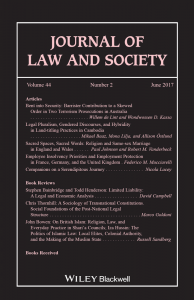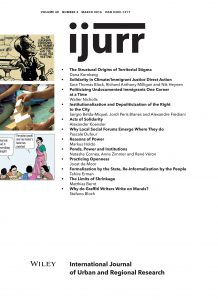Identity, Late-Modernity, and the Consumer Society
The concept of identity is one that holds great appeal; gripping the attention of both scholars and society. Nevertheless, the literature reveals little consensus as to what identity actually means. The term is expansive and the prevailing way to study it is to select out specific aspects of any individual such as their gender, nationality, race/ethnicity, job status, family role, sexuality, and so on. However, there have been dominant theoretical perspectives when considering identity. Additionally, it appears that current social...




1756-2589/asset/NCFR_RGB_small_file.jpg?v=1&s=0570a4c814cd63cfaec3c1e57a93f3eed5886c15)
1530-2415/asset/SPSSI_logo_small.jpg?v=1&s=703d32c0889a30426e5264b94ce9ad387c90c2e0)